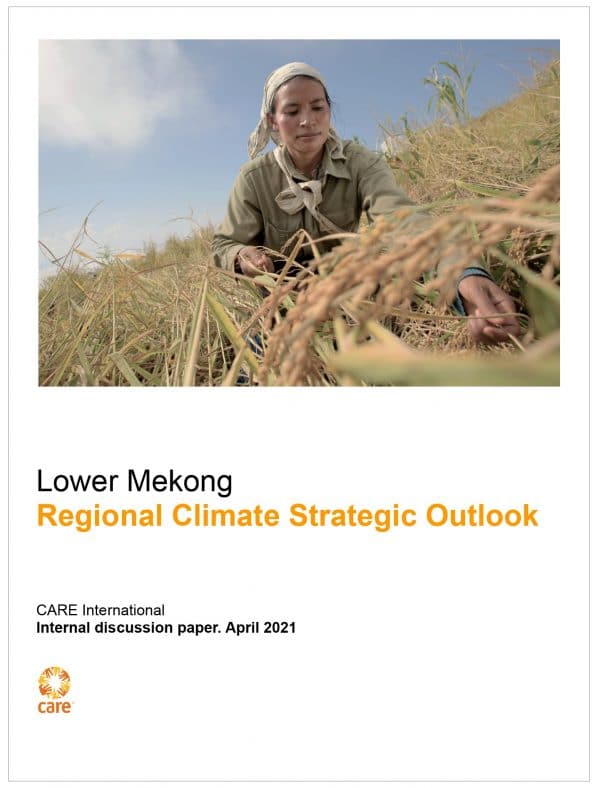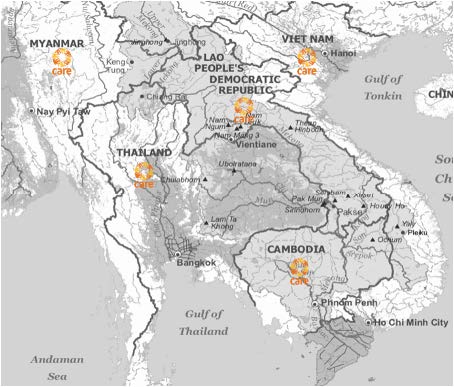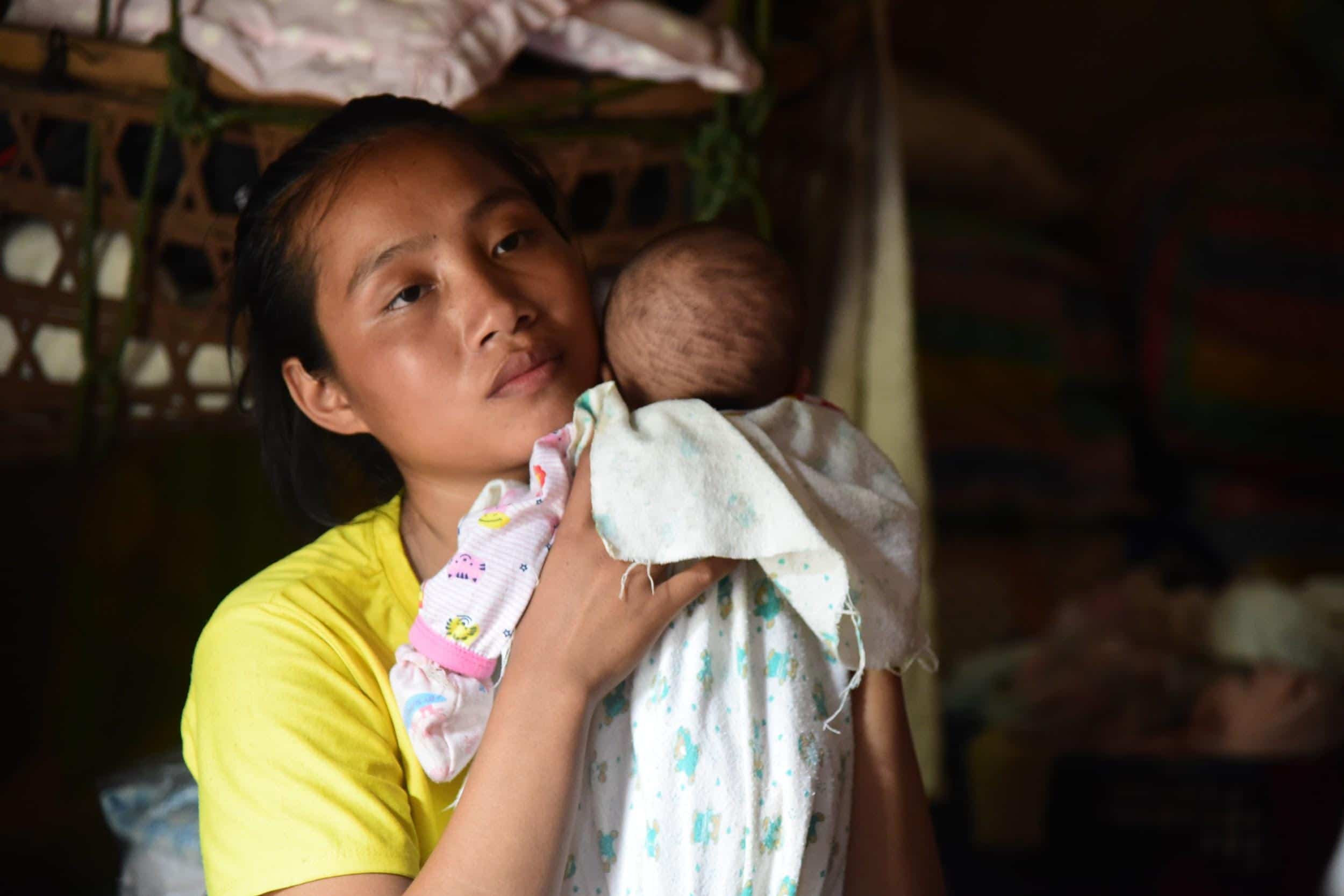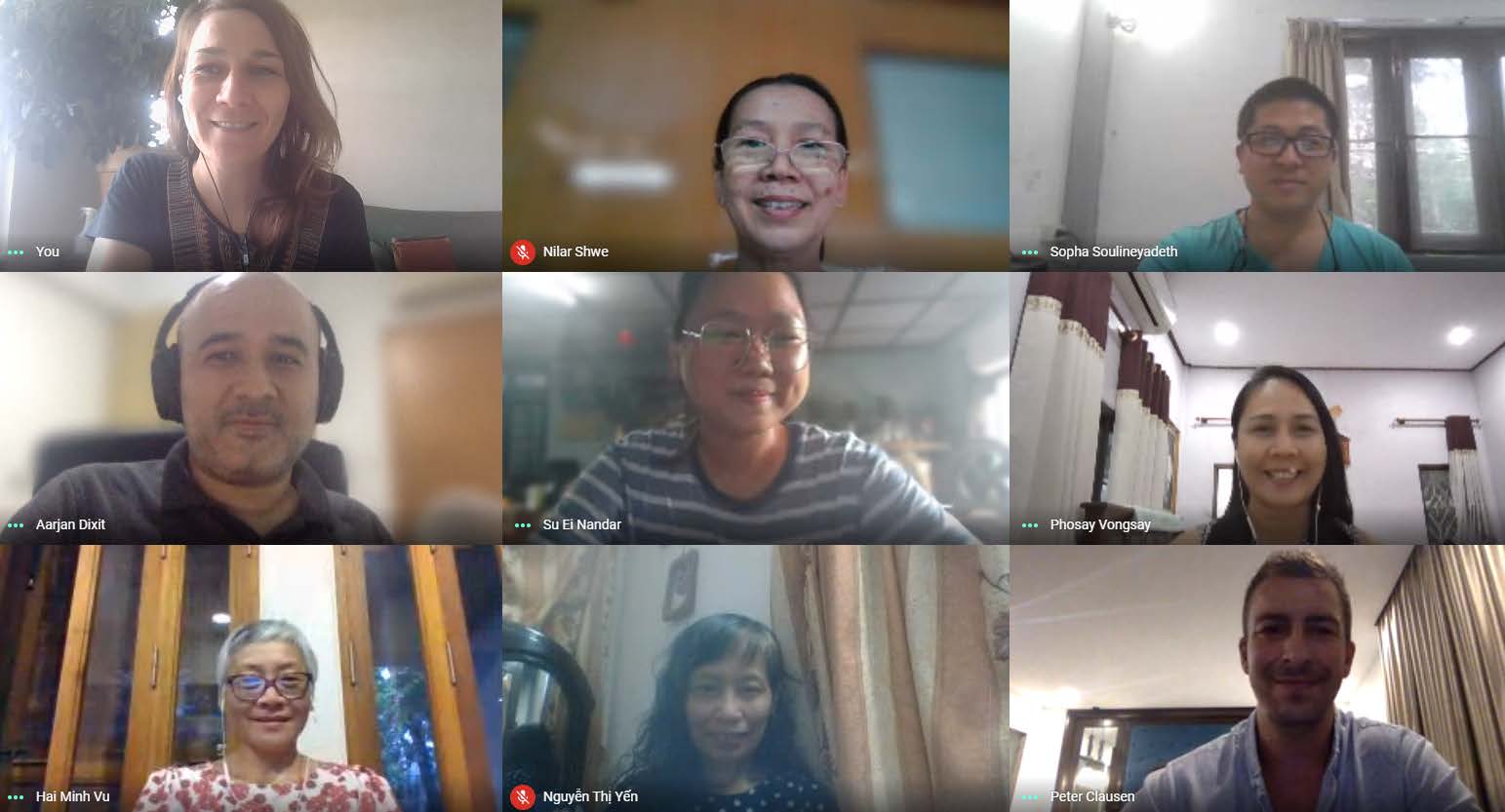CARE International: Lower Mekong – Regional Climate Strategy
In early 2021, following one year of Covid-19 travel restrictions, we had the privilege to come together with a group of CARE colleagues from Myanmar, Vietnam and Laos in a two-week Virtual Book Sprint. It was organized by Peter Bruun Clausen, Asia Regional Advisor at CARE International, who had participated in a Book Sprint in 2017 and has wanted to use the method again since then. When the country directors of CARE International agreed to go through a process of designing a regional climate strategy for the Lower Mekong, he took the opportunity and asked us to facilitate that process.

Fig. 1: The paper’s cover
Since the founding of our Sprintlab, we gladly accept such requests for projects that are not exactly a Book Sprint but still rely on collaborative-knowledge production and a short time frame. This time, the goal was to carve out a regional integrated approach for climate action and develop strategic recommendations for CARE decision-makers in the Mekong region.

Fig 2: Map of CARE’s presence in the Mekong region
No climate justice without gender justice
The Mekong is severely impacted by climate change. Although the climate emergency poses threats to everyone, its consequences are disproportionately felt by the global poor. Therefore, the main impact group for CARE programming are socially marginalized women at risk of climate change impact.
Their vulnerabilities are often intensified by a combination of ethnic or racial discriminatation, conflict, patriarchy and poverty. They tend to experience a slower economic recovery from disasters and have limited access to productive economic resources. Social norms around the world remain discriminatory towards women, restricting their ability to meaningfully participate in decision making in responses to the climate emergency. […] Given that gender inequality is a root cause of climate vulnerability, it is not possible to achieve climate justice without also working towards gender justice (extract from the introduction of the Climate Strategic Outlook)
How could this be tackled in a cooperative manner across the region? How could a regional integrated approach help to strengthen the the adaptive capacity and resilience of ethnic minority women?

Fig. 3: An image of the target group persona Keo
A Sprint Lab case: Sprinting a Climate Strategy Paper
We designed the virtual process with a specific selection of facilitation techniques, many different brainstorming exercises, and tools for analysis and strategic planning. We also weaved in many social activities for the eight authors, some of whom have never met before, to get comfortable with each other, create trust and agree on the objectives, scope and style of the strategic outlook paper from the beginning.
Obviously, a physical Sprint allows for social interaction in-between sessions. However, that is under non-pandemic circumstances: During the pandemic, that is exactly what a Book Sprint offered us above anything else: A chance for social interaction amidst travel restrictions. (Peter Bruun Clausen)

Fig. 4: Facilitator Karina and the participants from Myanmar, Laos, Vietnam and Denmark
During the first week in January we focused on what CARE has done in the past. We co-produced a meta analysis of CARE climate programming in the lower Mekong, which included creating a comprehensive project map list, identifying CARE’s capacities, climate change trends, challenges and gaps for the region, drawing lessons learned from the past ten years of climate action and deriving critical elements for building climate resilience, i.e. (1) sustainable and resilient livelihoods, (2) nature-based solutions to protect, manage and restore ecosystems, (3) humanitarian and development nexus to address growing and complex risks and (4) climate information services.
Because of the coup in Myanmar in 2021, we weren’t able to continue with the second part of the Book Sprint until three months later in April. Despite the ongoing adverse circumstances, we got back together to look at CARE’s future contribution to climate justice. On the base of the meta analysis, we mapped stakeholders, identified entry-points for regional climate action, developed regional project ideas and funding scenarios and, most importantly, made recommendations for various decision-makers.
Its been an amazing group to work with. Everyone was highly committed to bring in the best of their expertise, personalities and energy. Thank you all so much for this outstanding Book Sprint experience!
List of contributors
Aarjan Dixit – Private Consultant
Karina Piersig – Book Sprint Facilitator, Book Sprints Limited
Nguyen Thi Yen – Climate change Advisor, CARE Vietnam
Nilar Shwe – Programme Director – Rural Programme, CARE Myanmar
Peter Bruun Clausen – Regional Advisor, CARE Danmark
Phosay Vongsay – Disaster Risk Reduction & Climate Change Advisor, CARE Laos
Sopha Soulineyadeth – Deputy Program Director, CARE Laos
Su Ei Nandar – Program Advisor – Climate Resilience, CARE Myanmar
Vu Minh Hai – Rural Programme Team Leader, CARE Vietnam
